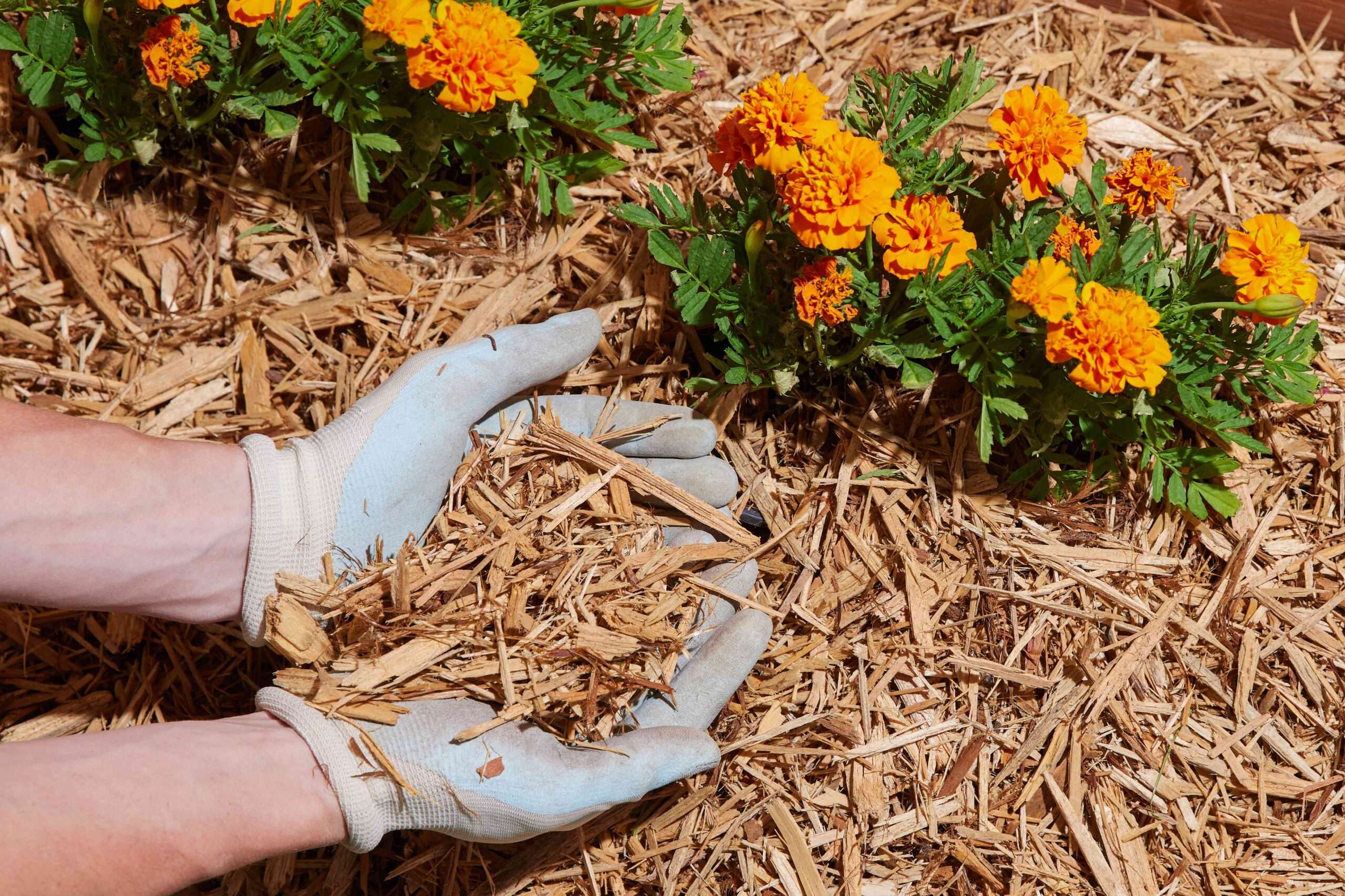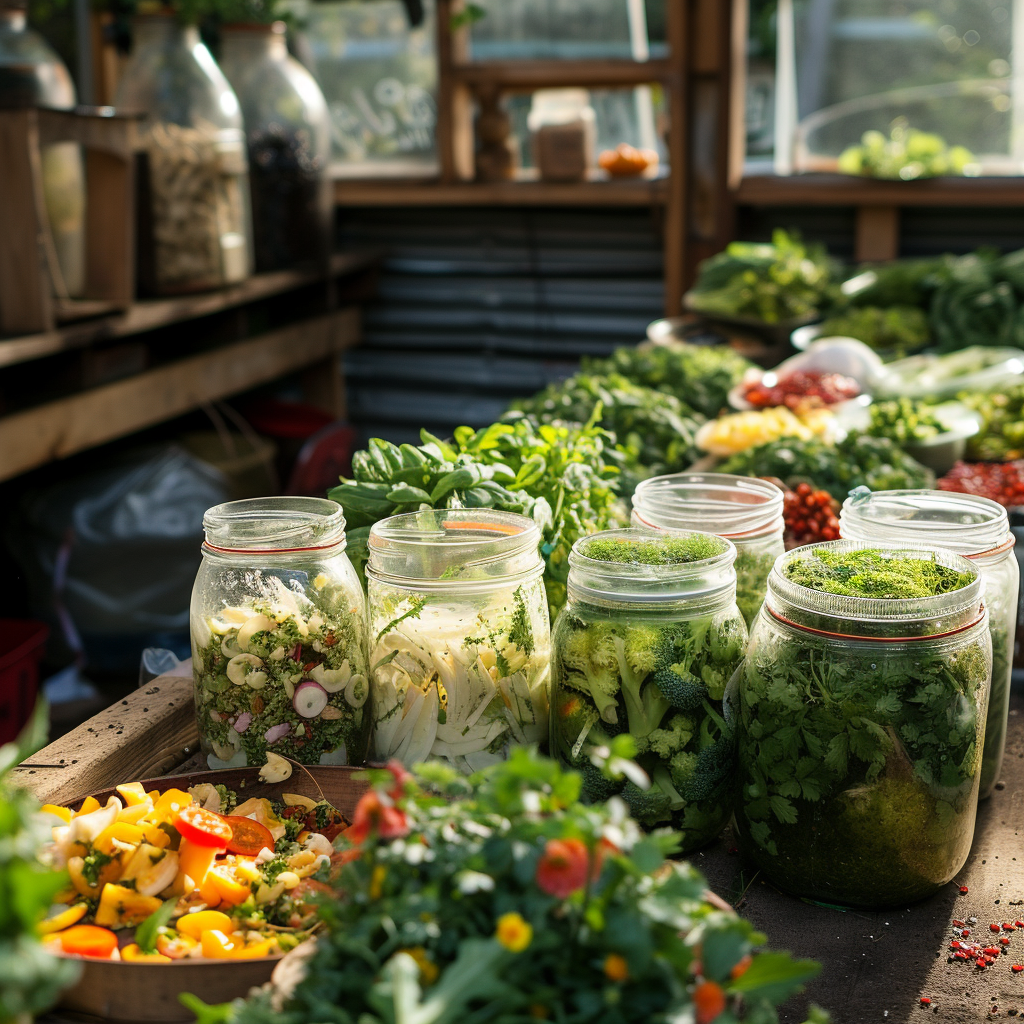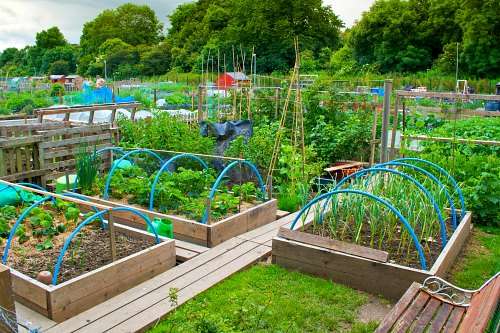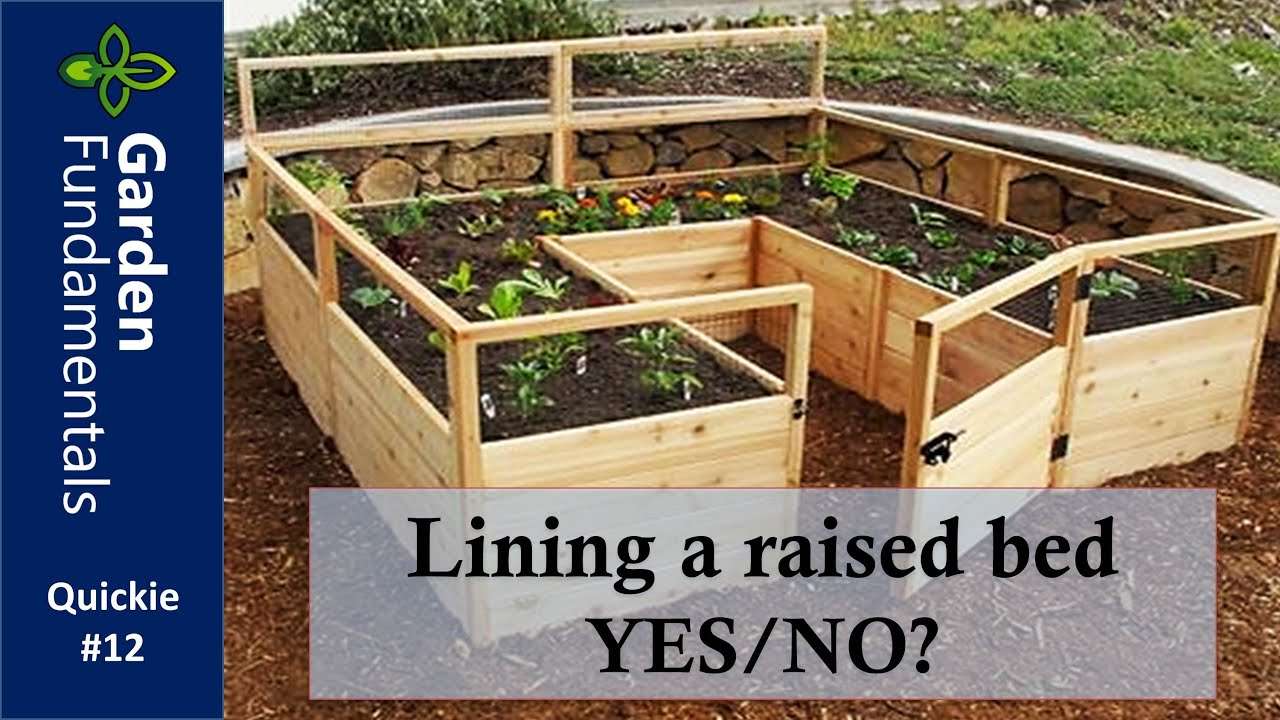So you’ve got a beautiful flower bed, but you’re wondering how to keep it healthy and weed-free? Well, the answer lies in mulching. Mulching flower beds has numerous benefits, and there are different types of mulches to choose from. Organic mulches, such as leaves, grass clippings, wood chips, and compost, are known to retain water, protect soil from sunlight, and provide essential nutrients. They also help with de-weeding and promote healthy bloom. On the other hand, if aesthetics matter to you, wood chips and shredded bark are excellent options. However, it’s crucial to remember that mulch should be applied in a 2-3 inch layer and should not touch plant stems. So, whether you’re looking to conserve moisture, suppress weed growth, or regulate temperature, mulching with the right type of mulch will do the trick.
Organic Mulches for Flower Beds
Flower beds benefit from different types of mulches, but organic mulches are the best option. Organic mulches provide numerous benefits for flower beds, including retaining water, protecting the soil from sunlight, and providing nutrients to the plants. There are several recommended organic mulches for flower beds that can help improve the overall health and appearance of your garden.
Leaves
Leaves are an excellent choice for organic mulch in flower beds. They are readily available and can be collected from your yard or nearby parks during the fall season. When using leaves as mulch, make sure to shred them first to prevent them from matting and restricting water movement. Shredded leaves help improve soil fertility as they break down over time.
Grass Clippings
Another organic mulch option for flower beds is grass clippings. Instead of throwing away the grass clippings after mowing your lawn, you can use them as mulch for your flower beds. Grass clippings help retain moisture in the soil and prevent weed growth. However, it’s essential to use dry grass clippings and apply them in thin layers to avoid matting and potential odor issues.
Wood Chips
Wood chips are a popular choice for organic mulch in flower beds due to their attractiveness and ability to retain moisture. They can be obtained from different types of trees, providing various colors and textures to enhance the aesthetic appeal of your garden. It’s important to use aged wood chips to avoid issues with nitrogen depletion in the soil. Applying a layer of wood chips around your flower beds can help insulate the soil, regulate temperature, suppress weed growth, and improve the overall health of your plants.
Compost
Compost is an excellent organic mulch option for flower beds due to its ability to improve soil fertility and structure. Compost is made from the decomposition of organic materials, such as kitchen scraps, yard waste, and animal manure. When used as mulch, it slowly releases nutrients into the soil and helps retain moisture. Additionally, compost acts as a natural fertilizer, promoting healthy growth and blooms in your flower beds.
Decorative Pebbles
For those looking for a visually appealing mulch option, decorative pebbles can be a great choice for flower beds. These small stones come in various shapes, sizes, and colors, allowing you to create unique and attractive designs in your garden. Decorative pebbles serve as a long-lasting mulch that doesn’t break down over time. However, they don’t provide the same soil improvement benefits as organic mulches.
Seaweed
Seaweed is a lesser-known organic mulch option for flower beds but can be highly beneficial. Seaweed is rich in minerals and nutrients, providing an excellent source of natural fertilizer for your plants. Using seaweed as mulch helps improve soil fertility and can contribute to healthier blooms. Remember to rinse the seaweed before applying it to remove excess salt.
Hay
Hay is commonly used as mulch in vegetable gardens, but it can also be beneficial for flower beds. It helps retain soil moisture, suppresses weed growth, and gradually decomposes, adding organic matter to the soil. However, be mindful of using hay with weed seeds, as it can introduce unwanted plants into your flower beds.
Straw
Straw is another organic mulch option that can be used in flower beds. It helps retain moisture, suppress weeds, and protects the soil from temperature extremes. Straw can be particularly useful in colder climates as it provides insulation to the soil during winter months. When using straw as mulch, make sure to avoid varieties with seed heads to prevent weed issues.
Aesthetically Pleasing Mulch Options
While the primary purpose of mulching flower beds is to provide essential benefits to the plants, it’s also important to consider the aesthetic appeal of your garden. Wood chips and shredded bark are two aesthetically pleasing options for organic mulch that can enhance the overall look of your flower beds.
Wood Chips
Wood chips come in different sizes, colors, and textures, making them a versatile option for adding visual interest to your garden. They can be obtained from various tree species, giving you the opportunity to choose the type of wood chips that best complement your flower beds. Wood chips are not only visually appealing but also provide excellent moisture retention and weed suppression.
Shredded Bark
Shredded bark is another option for aesthetically pleasing mulch in flower beds. It has a natural and rustic appearance that can add charm to your garden. Shredded bark retains moisture, regulates soil temperature, and helps prevent weed growth. Similar to wood chips, shredded bark comes in different sizes and colors, allowing you to select the best option for your flower beds.
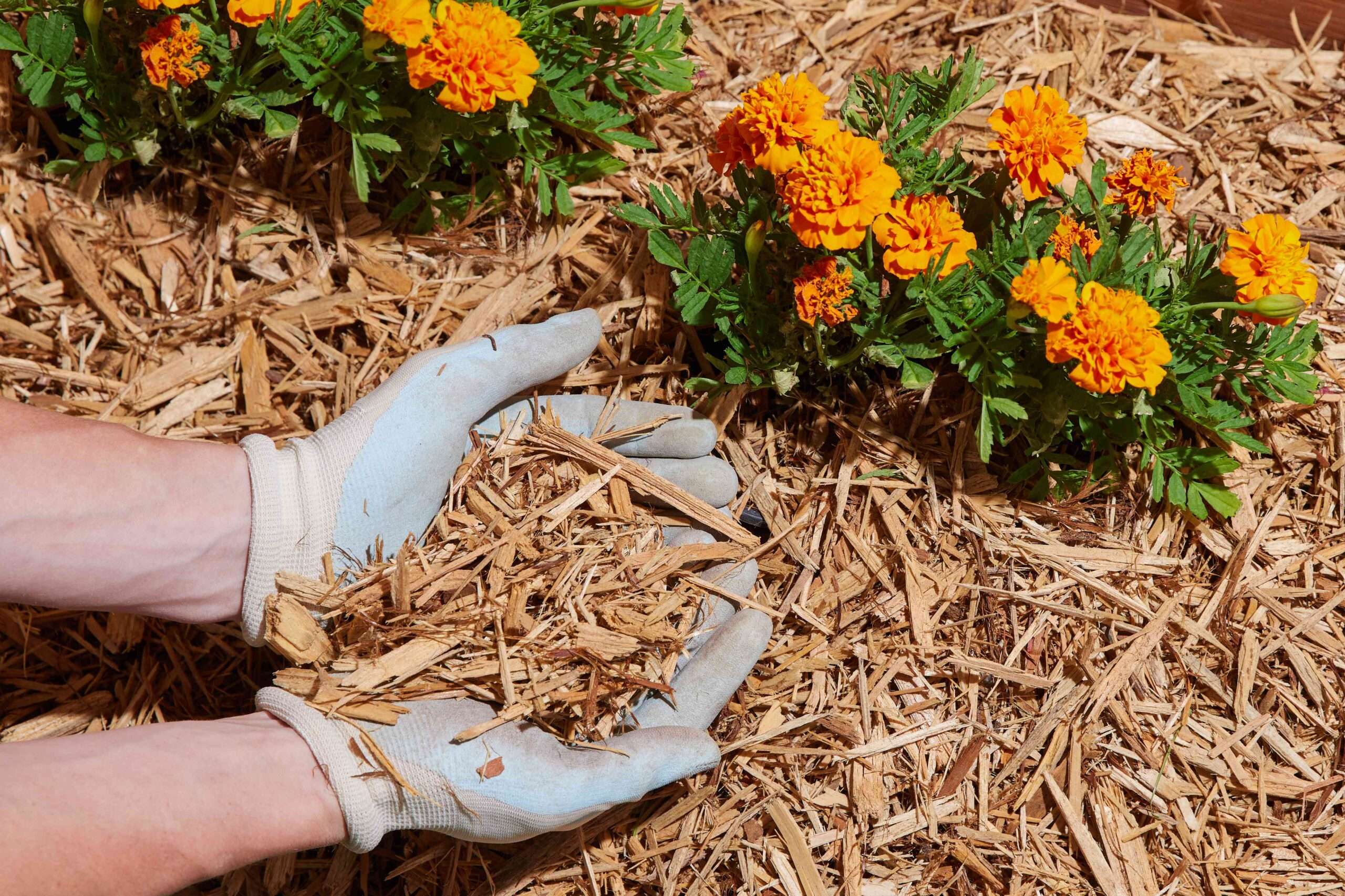
Benefits of Mulching Flower Beds
Mulching flower beds offers several advantages that contribute to the overall health and vitality of your plants. Let’s explore the key benefits of mulching flower beds.
De-weeding
One of the significant challenges in maintaining flower beds is weed control. Mulching flower beds can help suppress weed growth by creating a barrier between the soil surface and sunlight, preventing weed seeds from germinating. Additionally, organic mulches like wood chips, straw, and shredded bark can help smother existing weeds, making it easier to remove them from your flower beds.
Promotes Healthy Blooms
Mulching flower beds promotes healthy blooms by creating optimal growing conditions for plants. Organic mulches, such as compost and grass clippings, gradually break down and release essential nutrients into the soil, providing a consistent source of food for your plants. The nutrients help support healthy root development and encourage abundant flowering.
Effects of Over-Fertilizing
While proper fertilization is essential for the health of your plants, over-fertilizing can have detrimental effects on flower beds. Over-fertilization can lead to excessive plant growth, but the growth may be weak and susceptible to diseases and pests. This can result in stunted plant growth and poor overall health. It’s crucial to follow the recommended fertilization guidelines and use organic mulches to provide a natural and balanced source of nutrients.
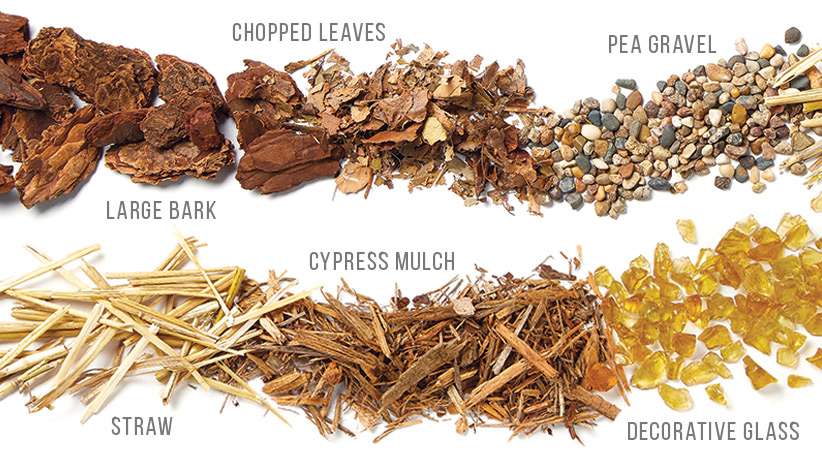
Proper Application of Mulch
To maximize the benefits of mulching flower beds, it’s important to apply the mulch properly. Here are two essential factors to consider when applying mulch:
Layer Thickness
The recommended layer thickness for mulch in flower beds is 2-3 inches. Applying too thin of a layer may not provide adequate weed suppression and moisture retention, while applying too thick of a layer can restrict oxygen movement and potentially suffocate the plant roots. Strive for a consistent layer of mulch throughout your flower beds, making sure to leave some space around the base of the plants to prevent stem rot.
Maintaining Distance from Plant Stems
Mulch should not touch the stems or trunks of plants. Direct contact between mulch and plant stems can create a favorable environment for pests, diseases, and rot. Leave a small gap around the base of each plant to ensure proper airflow and prevent moisture accumulation.
Benefits of Organic Mulches
Organic mulches offer several advantages for flower beds compared to inorganic mulches. Let’s explore the key benefits of using organic mulches in your garden.
Improvement of Soil Fertility and Structure
Organic mulches gradually break down over time, adding organic matter to the soil. This process helps improve soil fertility and structure, enhancing the overall health of your flower beds. Organic matter increases the water-holding capacity of the soil, encourages beneficial microorganisms’ activity, and provides a nutrient-rich environment for plant roots.
Moisture Retention
An important benefit of organic mulches is their ability to retain moisture in the soil. By creating a protective layer on the soil surface, organic mulches help reduce evaporation and minimize moisture loss. This can be particularly beneficial in dry or hot climates, where water conservation is essential for plant survival.
Weed Growth Suppression
Organic mulches act as a natural weed barrier, preventing weed seeds from receiving the sunlight they need to germinate. Mulching flower beds with organic materials like wood chips, straw, or shredded bark creates a physical barrier that inhibits weed growth. This reduces the amount of time and effort needed for weeding, allowing you to focus on other aspects of garden maintenance.
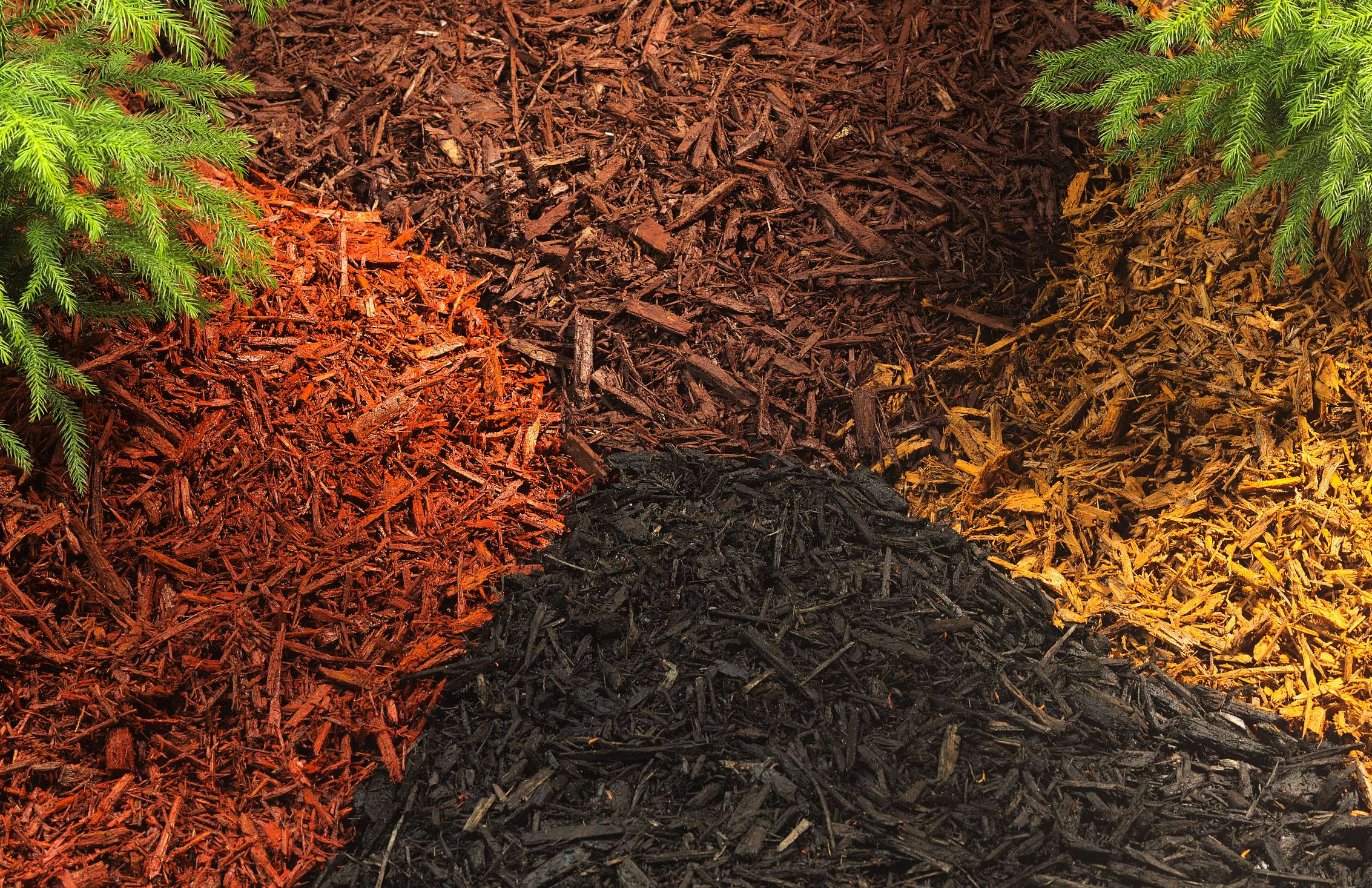
Inorganic Mulches
While organic mulches are generally recommended for flower beds, there are cases where inorganic mulches may be preferred. Inorganic mulches, such as rocks and gravel, provide long-lasting coverage and require minimal maintenance. However, it’s essential to consider their limitations before choosing them for your flower beds.
Rocks
Rocks can be an attractive addition to flower beds, particularly for those going for a minimalist or desert-themed garden. They come in various sizes and colors, allowing you to create unique designs and patterns. Rocks provide excellent weed suppression and require minimal maintenance. However, it’s important to note that rocks do not improve soil quality or provide additional nutrients to the plants.
Gravel
Similar to rocks, gravel is a low-maintenance inorganic mulch option. Gravel is available in different sizes and colors, enabling you to create a customized look for your flower beds. Gravel provides good weed suppression, but like rocks, it doesn’t enhance soil fertility. It’s important to note that gravel can absorb and radiate heat, which may affect the temperature regulation of your flower beds.
Benefits of Mulching Flower Beds
Mulching flower beds offers several benefits that contribute to the overall health and vitality of your garden. Let’s recap the key advantages of mulching flower beds:
Soil Moisture Conservation
Mulching flower beds helps conserve soil moisture by reducing evaporation and minimizing water loss. Organic mulches, in particular, excel at retaining moisture, ensuring that your plants have access to a consistent water supply.
Weed Suppression
Mulching flower beds creates a barrier that inhibits weed growth. By preventing weed seeds from receiving sunlight, organic mulches like wood chips, straw, and shredded bark suppress weed germination and development. This reduces the need for manual weeding and helps maintain a neat and tidy garden.
Temperature Regulation
Mulching flower beds can help regulate soil temperature. Organic mulches act as insulation, protecting the soil from extreme temperature fluctuations. This is especially beneficial during hot summers or cold winters, providing a stable environment for plant roots to thrive.
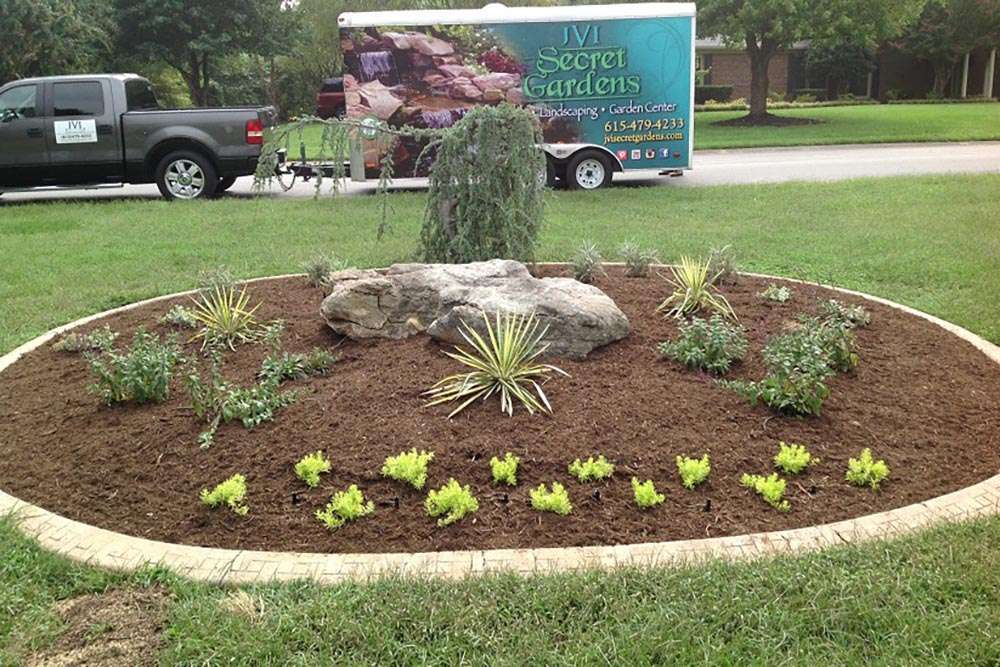
Recommended Mulches to Prevent Weeds
Preventing weed growth is a common goal for many gardeners. Here are some recommended mulches that effectively suppress weeds:
Wood Chips
Wood chips are an excellent choice for preventing weed growth in flower beds. The layer of wood chips acts as a barrier, blocking sunlight and inhibiting weed germination. Additionally, wood chips gradually break down, enriching the soil with organic matter and nutrients.
Straw
Straw is another mulch option that can effectively prevent weeds in flower beds. Straw provides good coverage, blocks sunlight, and helps retain moisture in the soil. It’s important to use straw without seed heads to avoid introducing weed seeds into your flower beds.
Shredded Bark
Shredded bark is not only aesthetically pleasing but also an effective mulch for weed suppression. Its dense texture prevents weed seeds from germinating, keeping your flower beds weed-free. Shredded bark also helps retain moisture and regulates soil temperature.
In conclusion, mulching flower beds with organic materials offers numerous benefits, including improved soil fertility, moisture retention, and weed suppression. There are various organic mulches to choose from, such as leaves, grass clippings, wood chips, compost, decorative pebbles, seaweed, hay, and straw. Wood chips and shredded bark are excellent options for those seeking aesthetically pleasing mulch. Proper application of mulch involves maintaining a 2-3 inch layer thickness and ensuring a distance from plant stems. The use of organic mulches gradually improves soil structure, suppresses weed growth, and promotes healthy blooms. Inorganic mulches like rocks and gravel provide long-lasting coverage but do not enhance soil quality. Mulching flower beds helps conserve soil moisture, suppress weeds, and regulate soil temperature. To prevent weeds, wood chips, straw, and shredded bark are recommended mulch options. By choosing the right mulch and applying it correctly, you can create beautiful and healthy flower beds that will thrive throughout the seasons.

